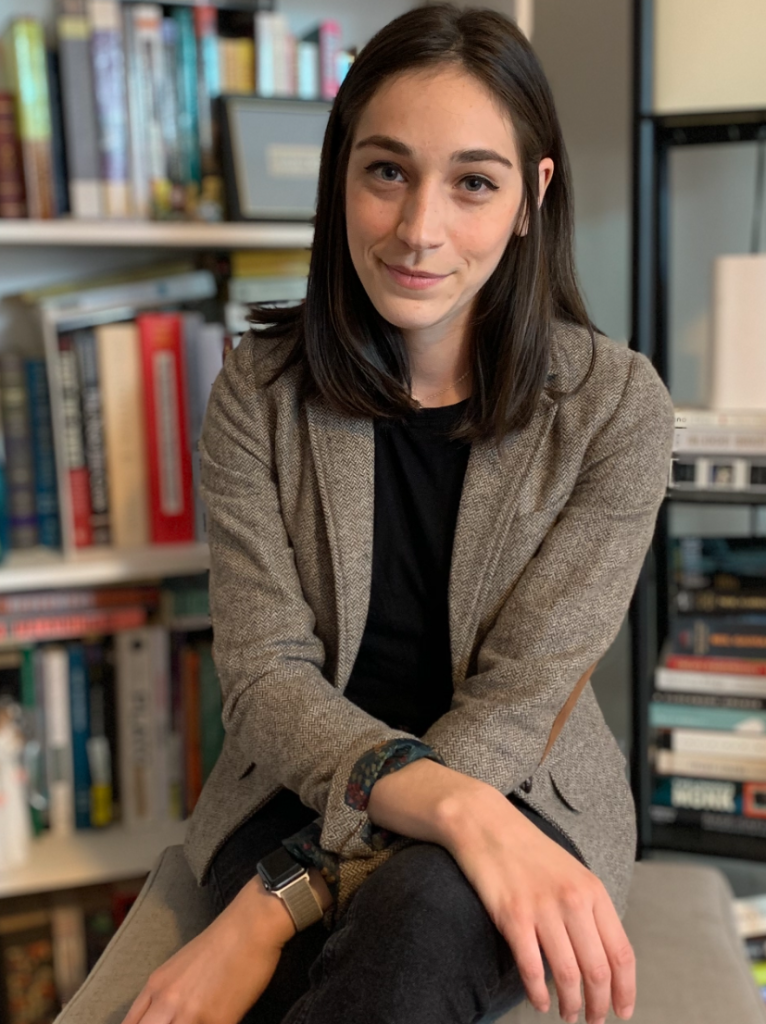By: Emily Jodway
When Dr. Alyssa Lopez stepped onto the campus of Michigan State University after earning her undergraduate degree at Queens College in New York, she was struck by the vastness of the campus and its many branches, from the Dairy Store to the Bug House. However, the wealth of opportunities and learning Dr. Lopez found at MSU helped her to become the researcher she is today. She credits her mentors in both the History and Film Studies departments for guiding her as she wrote her dissertation and the beginning of what will be her first book, “Reel Freedom: Black Film Culture in Early Twentieth Century New York City.”
“Coming to MSU was a huge change, but it was also a really amazing experience. I was able to find community even on that very big campus. All of my best friends are from my PhD program,” Lopez said. “What I remember most are the people who ushered me through my program – Dr. Pero Dagbovie, Dr. Michael Stamm, Dr. LaShawn Harris, Dr. Joshua Yumibe – they were amazing.”
Along with a supportive group of faculty mentors to guide her through what could otherwise seem like a very daunting experience, Lopez joined several groups on campus that allowed her to discover even more opportunities, which eventually led her to her current career path: teaching. Lopez was an Interdisciplinary Inquiry and Teaching fellow at James Madison College, and a recipient of the King-Chavez Parks fellowship, both targeted toward those hoping to teach at higher education institutions after earning their degrees. Lopez currently teaches early 20th-century Black history and film at Providence College.
Lopez first became interested in this area of research in an undergraduate film studies course. The subject of Black cinema was touched on briefly during the course, and Lopez was left wanting more.
“For one section of one lecture in the class, my professor mentioned Black cinema,” Lopez explained. “He introduced it, talked about one specific director, then went back to talking about mainstream cinema. It was something that didn’t sit right with me. I knew that couldn’t be the end of Black film and all the many, many stories it has to tell.”
She has since been working on her book and other research surrounding the history of Black cinema. Her current project covers 20th-century Black film culture in New York City. She is examining the act of moviegoing, the labor involved in film production, and black film criticism.
“It all serves as a really important means of placemaking for Black New Yorkers during that time, that sort of works against a city that’s trying to resist their existence and full participation in city living,” Lopez said.
As she developed her research, Lopez had to discover her own path through higher education as a first-generation college student. She credits it as one of the defining aspects of her college career and continues to serve as a mentor to fellow first-gen students at Providence College. While navigating the collegiate world without parents or siblings to offer advice can be difficult, she stresses that it’s not impossible and that more and more schools are offering services, like mentoring relationships, that help make the process a little easier.
“It was definitely harder to get where I am now without the privilege of having family members who have had this experience before, but I did get here, right?” she says. “I think academia can be this really scary space, and that having people with different backgrounds, perspectives and starting points is so essential to making academic institutions more open and survivable for those of us that don’t know it inside and out.”
Lopez counts Dr. Dagbovie, a professor in the history department, associate provost for Graduate and Postdoctoral Studies, and dean of the Graduate School, as an invaluable mentor while at Michigan State and an inspiration to continue to teach and mentor others and improve their learning experiences. She was struck by his attentiveness and helpful attitude while she was still in the process of applying to MSU and other graduate schools.
“I hadn’t even submitted my application and he was putting in the time and resources to work with me,” she said. “He’s the kind of mentor that only comes around once in a lifetime. He just cares so deeply for his mentees and his students, and he wants to see success in whatever ways his mentees define it. I can say with confidence that I would not be where I am today without Dr. Dagbovie.”
In addition to teaching courses at Providence, Lopez is wrapping up her book and has begun a new archival research project on Marlon Riggs, a Black gay documentary filmmaker. She is particularly interested in his filmmaking practice, which many found controversial, but which Riggs stood behind and continued to push for its relevance in the public sphere. She hopes the students she teaches continue to be curious individuals who “take what they’ve learned out into the world and into their work, to make the world a better place and a more understandable one that is accessible to all.”
Read more about Lopez and her work by visiting https://history.providence.edu/faculty-members/alyssa-lopez.
